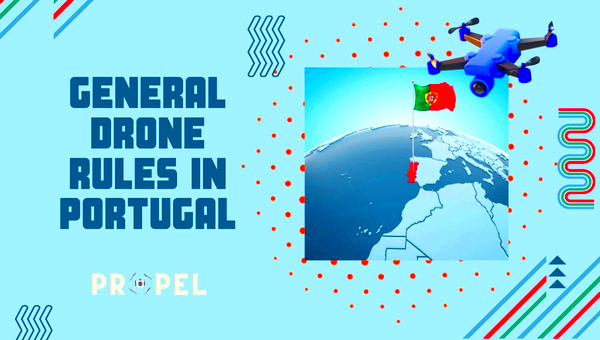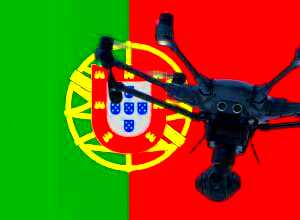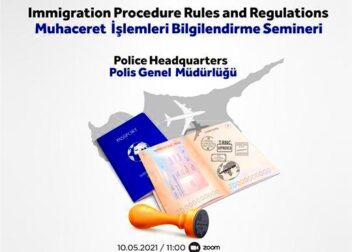Drone Laws in Portugal and Safe Drone Use Guidelines
Drone use has become increasingly popular in Portugal, attracting hobbyists and professionals alike. However, with the rise of drone technology, it’s crucial to understand the legal landscape surrounding its use. Portugal has specific laws and regulations to ensure safe and responsible flying. Whether you’re a local or a tourist, familiarizing yourself with these laws will help you avoid fines and contribute to the safety of others.
Overview of Drone Regulations in Portugal

In Portugal, drone regulations are overseen by the Autoridade Nacional da Aviação Civil (ANAC). They establish rules that align with European Union regulations to promote safe and responsible drone operations. Here are the key aspects:
- Categories of Drone Use: Drones are categorized based on weight and intended use, affecting the rules that apply.
- General Rules: Drones must always be in the operator’s visual line of sight, and flying over crowds is generally prohibited.
- Height Limits: The maximum altitude for recreational flying is typically set at 120 meters (approximately 394 feet).
- Insurance Requirements: Depending on the drone’s use, liability insurance may be mandatory.
Familiarizing yourself with these regulations is essential for any drone pilot in Portugal.
Registration Requirements for Drones
If you’re planning to fly a drone in Portugal, you may need to register it with ANAC. Registration is required for drones weighing over 250 grams (approximately 0.55 pounds) or those equipped with cameras. Here’s a step-by-step guide:
- Check the Weight: Determine if your drone exceeds 250 grams.
- Visit ANAC’s Website: Access the registration portal and create an account.
- Provide Necessary Information: Fill out the required forms, including details about the drone and your contact information.
- Pay Registration Fee: A nominal fee may be required for registration.
- Receive Registration Confirmation: Once processed, you will receive a confirmation email with your registration number.
Keep your registration details handy while flying, as you may need to present them to authorities if requested.
Drone Operation Zones and Airspace Restrictions
Understanding where you can and cannot fly your drone is essential for staying compliant with the law. In Portugal, certain areas are designated as no-fly zones to protect people, property, and sensitive locations. These restrictions ensure safe air travel for everyone. Here’s a breakdown of key zones:
- Urban Areas: Flying drones over densely populated urban areas is generally prohibited.
- Near Airports: You must stay at least 8 kilometers (approximately 5 miles) away from airports and airfields.
- Military Zones: Avoid flying near military installations, as they are strictly off-limits.
- National Parks and Natural Reserves: These areas often have specific restrictions to protect wildlife and the environment.
- Events and Gatherings: Flying over large gatherings, such as concerts or festivals, is not allowed.
To help you navigate these restrictions, consider using drone mapping apps that indicate no-fly zones. Being aware of these regulations not only keeps you safe but also ensures that you respect the rights and safety of others.
Safety Guidelines for Drone Pilots
As a responsible drone pilot, safety should always be your top priority. Following safety guidelines helps prevent accidents and promotes positive relationships with the community. Here are some essential tips to keep in mind:
- Pre-Flight Checks: Always inspect your drone before each flight. Check for any damage, ensure batteries are charged, and verify that all components are functioning correctly.
- Respect Privacy: Avoid flying over private property without permission. Respecting others’ privacy builds goodwill in the community.
- Stay Below 120 Meters: Keep your drone at or below the 120-meter (394 feet) altitude limit to avoid airspace conflicts.
- Use Visual Line of Sight: Always keep your drone within your sight. If you can’t see it, you risk losing control.
- Check Weather Conditions: Avoid flying in poor weather, such as strong winds or rain, which can compromise your control over the drone.
By following these guidelines, you contribute to a safer flying environment for everyone.
Penalties for Violating Drone Laws
Violating drone laws in Portugal can lead to significant consequences. It’s essential to understand the potential penalties to avoid fines or legal trouble. Here’s a breakdown of what you might face:
| Violation | Possible Penalty |
|---|---|
| Flying without registration | Fines ranging from €200 to €3,000 |
| Operating in no-fly zones | Fines up to €5,000 |
| Not adhering to altitude limits | Fines between €200 and €2,500 |
| Endangering people or property | Severe penalties including possible criminal charges |
In addition to financial penalties, violating drone laws could lead to the confiscation of your drone. To avoid these consequences, always stay informed about the latest regulations and operate your drone responsibly. Remember, following the rules ensures a safe flying experience for everyone.
Tips for Responsible Drone Use
Using a drone can be a fantastic experience, but it also comes with responsibilities. To ensure you’re flying your drone safely and legally, here are some practical tips to keep in mind:
- Educate Yourself: Take the time to learn about local laws and regulations. Familiarize yourself with the ANAC guidelines and stay updated on any changes.
- Join a Community: Consider joining a local drone club or online forum. Engaging with other drone enthusiasts can provide valuable insights and help you learn best practices.
- Use Apps for Planning: Utilize apps that provide real-time information about airspace restrictions and weather conditions. These tools can enhance your flying experience.
- Practice Good Communication: If you’re flying in shared spaces, let people around you know what you’re doing. A little communication goes a long way in avoiding misunderstandings.
- Respect Nature: When flying in natural areas, be mindful of wildlife. Avoid flying too close to animals or their habitats to minimize disturbances.
By following these tips, you can enjoy your drone flying while being a considerate and responsible pilot.
Conclusion
In conclusion, flying a drone in Portugal can be a rewarding hobby or profession, provided you adhere to the laws and safety guidelines in place. Understanding the regulations, knowing where you can operate, and following best practices for safety are essential for a successful flying experience. By being informed and respectful, you not only protect yourself but also contribute to a positive perception of drone use in society. So, gear up, check your regulations, and enjoy the skies responsibly!
Frequently Asked Questions
1. Do I need a license to fly a drone in Portugal?
Yes, if your drone exceeds a certain weight or is used for commercial purposes, you will need to obtain a license. Always check the specific requirements based on your drone’s classification.
2. Can I fly my drone at night?
Flying at night is generally allowed if your drone is equipped with appropriate lighting and you can maintain visual line of sight. However, always confirm local regulations first.
3. What should I do if my drone gets lost?
If you lose control of your drone, try to retrace your last known position. If you can’t find it, report the loss to local authorities, especially if it landed in a restricted area.
4. Are there age restrictions for flying drones?
Yes, pilots must typically be at least 16 years old to operate drones. However, younger individuals can fly under the supervision of a licensed adult.
5. What is the maximum altitude I can fly my drone?
In Portugal, the maximum altitude for recreational drone flying is 120 meters (394 feet). Always ensure you’re flying within this limit to avoid legal issues.


